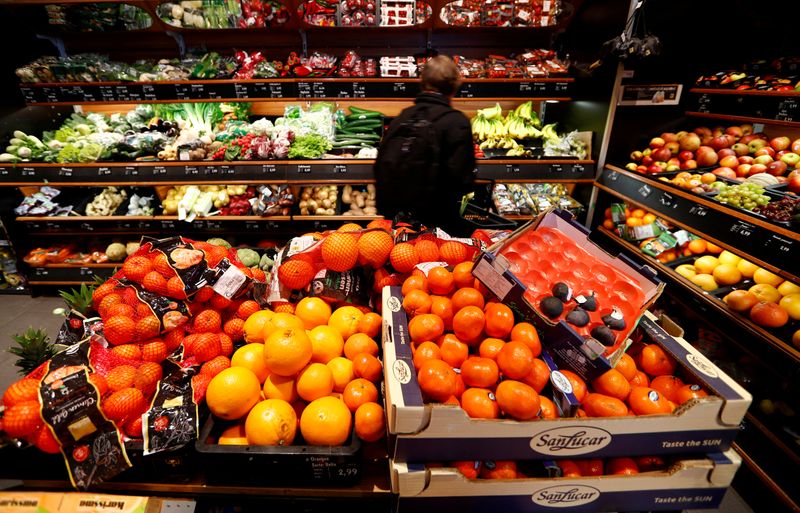FRANKFURT (Reuters) - Inflation in the euro zone was likely kept higher by temporary factors during the lockdowns last year as some goods became hard to come by and hesitant entrepreneurs put off cutting prices, a European Central Bank study showed on Monday.
The authors concluded that it was important for ECB policymakers to filter out these and other factors related to the supply of goods and services to focus on how the pandemic was depressing demand, underpinning the need for stimulus.
Euro zone inflation slowed sharply in March but prices only began falling in August. They remained negative through the end of the year before likely rebounding in January as some tax cuts expired.
The ECB study found this delayed reaction might be due to factors such as disrupted supply, an initial reluctance to offer rebates and the difficulty of guessing the price of goods that were no longer for sale, such as packaged holidays.
"Recent evidence on the impact of the initial lockdowns suggests that the associated supply effects have exerted upward pressure on inflation to some extent," authors Derry O’Brien, Clémence Dumoncel and Eduardo Gonçalves said. "Lockdowns also presented price collection difficulties for statisticians."
For example, webscraping data showed that fewer goods than usual were available online and even fewer were discounted in Germany and Italy for part of the spring.
There was also "some evidence" that entrepreneurs postponed rebates until the outlook became clearer, either because their business was disrupted or because their clients were shut and could not easily be enticed by discounts.
Finally, statisticians had to put a price tag once some goods that had been taken off the market, such as airfare, accommodation and entertainment.
"For monetary policy it is important to identify and look beyond any supply-side effects in order to gain a clearer picture of the disinflationary demand effects that inevitably come with income losses and uncertainty," authors Derry O’Brien, Clémence Dumoncel and Eduardo Gonçalves said.

"Moreover, recent research also raised the possibility that supply effects could morph into larger negative demand effects," they added.